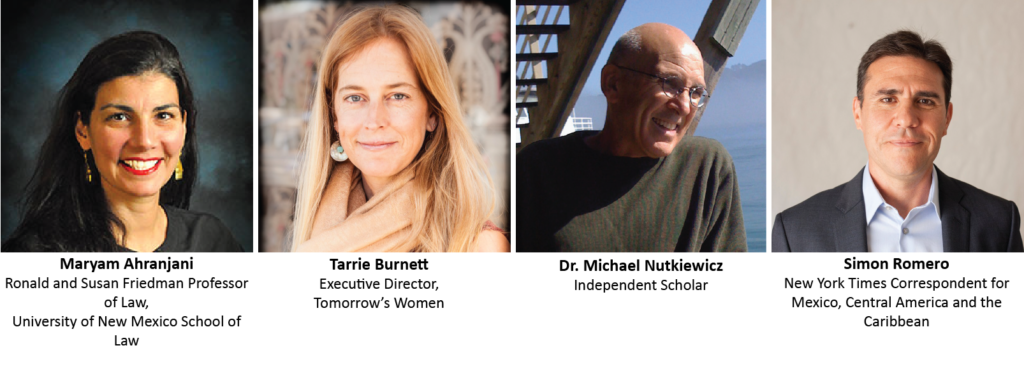PANEL DISCUSSION
The Universal Declaration of Human Rights was drafted by representatives with different legal and cultural backgrounds for all regions of the world and was proclaimed by the United Nations General Assembly in Paris on December 10, 1948, after the defeat of Nazi Germany. It sets out, for the first time, fundamental human rights to be protected and it has been translated into over 500 languages. It is widely recognized as having inspired and paved the way for the adoption of mor than seventy human rights treaties. The Universal Declaration’s goal was to fend off future authoritarianism, but we are currently seeing shifts towards frightening totalitarianism around the world. If the basic human rights proposed in the Declaration were adopted and respected by every country, would the world be transformed?
A distinguished panel of experts, thinkers, scholars, and journalists will share their experience of encountering seemingly difficult political and polarized situations, and address the question: Are human rights still an effective weapon against autocracy and tyranny? Where do they see hope, and what more do we need to do to protect human rights?
This event is part of Through the Flower Art Space’s current exhibition “Holocaust Project and the Legacy of Genocide.” The exhibition features a unique body of art combining painting and photography that explored the subject of the Holocaust, a subject that is largely absent from contemporary art (outside of the Jewish community) created by renowned artist Judy Chicago and photographer Donald Woodman between 1985 and 1993. This show, along with its educational events, is intended to raise important questions about the human capacity for evil and how to choose hope in a world that seems increasingly dark. Please join us for this important dialogue as we face a global human rights and political crisis. The lecture will be followed by a question-and-answer session.
Seating is Limited. Reservations are Required.

Maryam Ahranjani is the Ronald and Susan Friedman Professor of Law at the University of New Mexico School of Law. She specializes in constitutional rights, criminal law, and education law. She has taught at American University and Universidad del Istmo Facultad de Derecho in Guatemala City. Among other positions, Maryam served as a consultant for the U.S. Department of State/Guatemala and U.S. Agency for International Development/Guatemala. From 2009-2014 she was Associate Director of the Marshall-Brennan Constitutional Literacy Project, a program that trains law students to teach public high school students about constitutional rights and responsibilities.
Tarrie Burnett, Executive Director, Tomorrow’s Women. Tomorrow’s Women’s mission is to prepare a new generation of Palestinian and Israeli young women for leadership roles in their respective communities. Since 2003, the organization has brought small groups of Palestinian and Israeli women to New Mexico to dialogue and develop leadership skills. Tarrie previously worked with Lutheran Family Services Rocky Mountains, developing nationally recognized mental health and wellness, micro-financing, and sustainable farming initiatives and programs for refugee families. She currently volunteers with the New Mexico Refugee Educational Bridge Project, supporting young women from Afghanistan as they pursue secondary and higher education in the United States.
Michael Nutkiewicz, Independent Scholar. Trained as a historian, Michael taught at the University of Missouri-Columbia and the University of New Mexico. He served as Executive Director of the Program for Torture Victims (Los Angeles), an agency that provides medical, psychological, and legal services to victims of state-sponsored torture, as well as the manager of the refugee resettlement program at Catholic Charities of New Mexico. From 2001-2007, he was senior historian at the Survivors of the Shoah Visual History Foundation, the archive founded by Steven Spielberg to film the testimony of Holocaust survivors around the world. He recently published an annotated translation of a 1921 Yiddish memoir of an aid worker in Ukraine during the Russian Civil War.
Simon Romero, New York Times Correspondent for Mexico, Central America, and the Caribbean. Located for many years in Albuquerque, Simon recently moved to Mexico City. He is well known for his reporting on US-Mexico border issues, immigration policy, indigenous sovereignty, and topics in climate change. In 2015 he was awarded Columbia University’s Maria Moors Cabot Prize, the oldest international award recognizing journalists who contribute to Inter-American understanding.